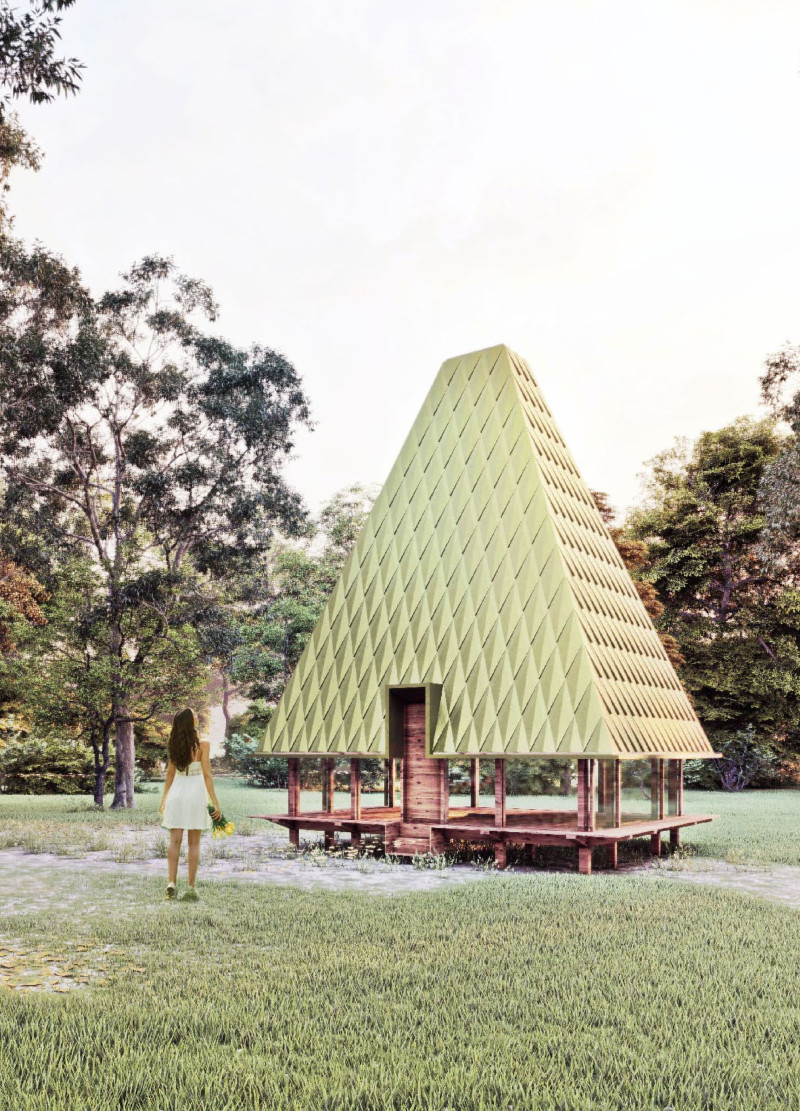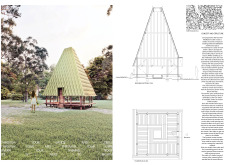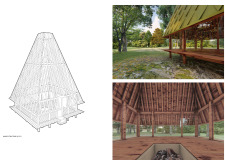5 key facts about this project
The Tiny Kiwi Meditation Cabin is designed to create a quiet space for meditation and reflection. Set in a peaceful environment, the cabin encourages people to connect with nature and themselves. The overall design promotes simplicity and functionality, making it an accessible retreat for those seeking solace.
Design Concept
The cabin's most notable feature is its pyramid hip roof. This shape not only defines the structure but also affects how users experience the space. When standing, the roof blocks views, prompting users to look down at the ground. However, when users are sitting or lying, they can see the outdoors clearly. This thoughtful approach deepens the connection to the environment, enriching the meditation experience.
Spatial Organization
The main entrance faces north, linking the cabin to a nearby footpath. This setup makes it easy to enter and exit, fostering a practical relationship with the landscape. Inside, the space is elevated, creating a feeling similar to ancient temples that invite contemplation. This height adds to the sense of peace as individuals step inside, preparing for meditation.
Material Considerations
Local materials are central to the cabin’s construction. Wood panels and joists form the main structure, aligning with environmentally friendly practices. The use of metal roof panels provides strength and protection against the elements, ensuring the cabin remains functional while fitting in with the natural surroundings. This choice of materials emphasizes sustainability and the desire for the cabin to feel part of its environment.
Design Details
Natural light is an essential part of the interior design. Light pours in through the top of the pyramid roof, brightening the space. A fixed horizontal window and smaller openings allow for airflow, which keeps the interior comfortable. The central wooden panel serves as both a fire pit and storage, making the most of the limited space. This practical element combines functionality and style, supporting the quiet and thoughtful atmosphere intended for meditation.



















































